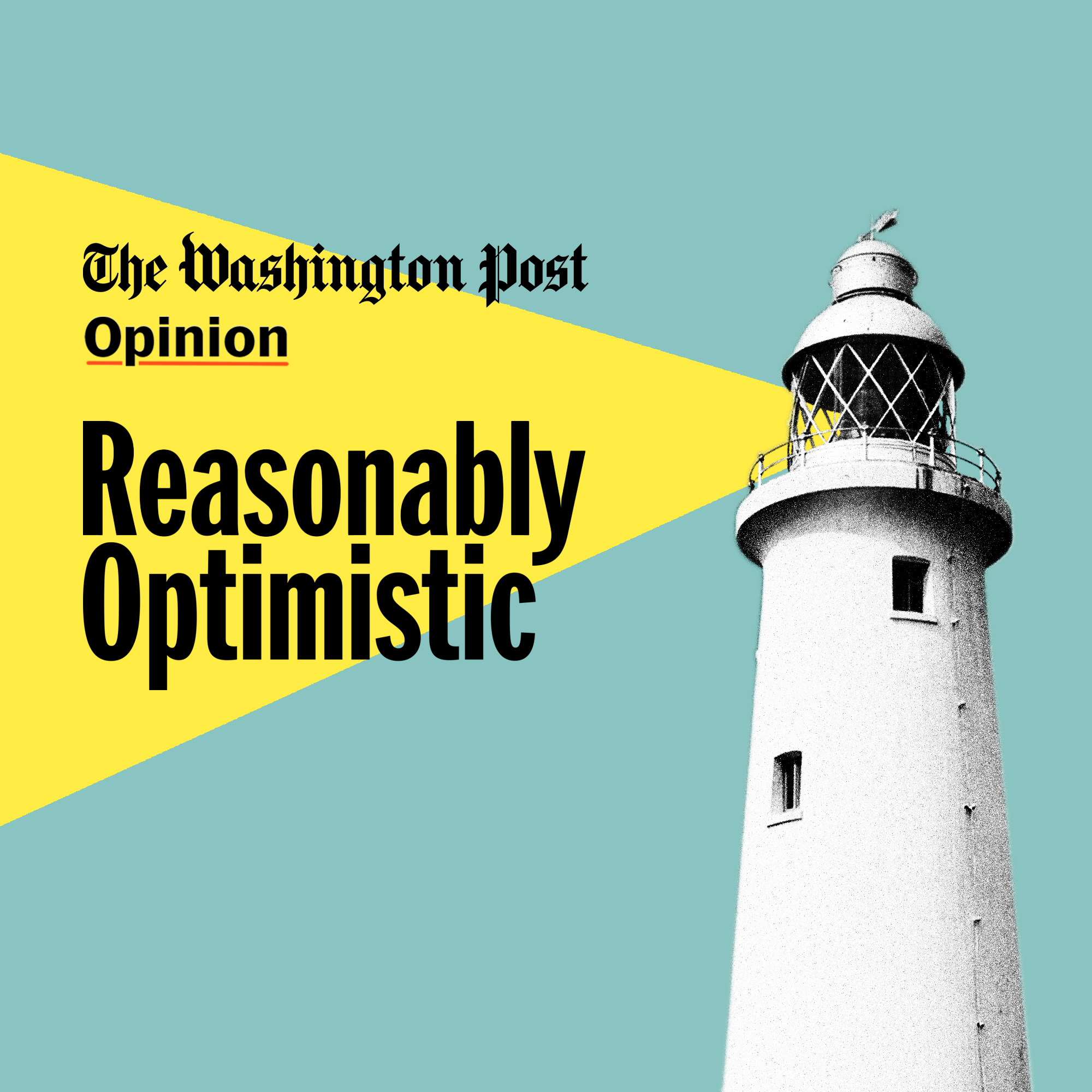

Reasonably Optimistic
The Washington Post
Enough with the doom and gloom — we’re ready to talk about how America can thrive. Hosted by Washington Post Opinion columnist Megan McArdle, “Reasonably Optimistic” is your weekly conversation about how America can get unstuck and build a better future. Stop feeding your rage and start embracing our possibilities. Episodes drop Wednesdays.
Episodes
Mentioned books

18 snips
Jan 14, 2026 • 54min
Dry January? Sometimes drinking is part of the solution.
In a compelling discussion, journalist and podcaster Katie Herzog shares her journey with alcohol and the unconventional Sinclair Method. She opens up about her early drinking experiences and the struggles she faced in her 30s, attempting various sobriety approaches like AA and therapy. Katie details how she discovered the Sinclair Method, involving naltrexone to help rewire her relationship with alcohol. She emphasizes the challenges of compliance and cultural pushback against this method while offering insights on who can benefit from it. This engaging conversation blends personal experience with actionable advice.

9 snips
Jan 10, 2026 • 29min
No blood for oil? That doesn’t make sense for Venezuela.
Venezuelan President Nicolás Maduro's capture sparked protests and revived the 'no blood for oil' slogan. The podcast explores Venezuela's complex oil history, including the resource curse and the impact of oil price cycles on politics. It delves into Hugo Chavez's regime, highlighting the consequences of purges at PDVSA and lost expertise. The host argues that seizing Venezuelan oil would be economically irrational for the U.S., calling for a planned democratic transition and the necessary support to rebuild the country's oil capacity.

22 snips
Jan 7, 2026 • 52min
How the internet changed politics — and our lives — forever
Matthew Yglesias, a journalist known for co-founding Vox and his astute commentary on politics, dives into how the internet has revolutionized both media and governance. He shares his early blogging adventures and discusses the pivotal role of online organizing during Obama's campaign. Yglesias critiques the cynical shift in political fundraising influenced by digital platforms and explores the repercussions of social algorithms on newsroom culture. Despite the chaos, he remains optimistic about America's resilience and its liberal traditions.

20 snips
Dec 31, 2025 • 14min
Was 2025 the ‘end of America’? Of course not.
The podcast dives into the myth of impending doom by zooming out from alarming news narratives. It discusses positive economic indicators like GDP growth and a cooling labor market. Interestingly, while high-profile attacks make headlines, crime rates are actually declining. Life expectancy in the U.S. is improving, and technology is reshaping youth experiences, sometimes positively. With advancements in AI and self-driving technology, there are ample reasons for optimism about the future.

Dec 24, 2025 • 44min
Charlie Kirk was killed on her campus. This is what happened next.
Astrid Tuminez, President of Utah Valley University and a former corporate executive, shares her experience leading her campus after the tragic shooting of Charlie Kirk. She discusses the importance of faith, community, and core values in fostering resilience. Tuminez emphasizes the need for safe spaces for dialogue, highlights student initiatives promoting tolerance, and reflects on her journey as an immigrant. Her insights on leadership and coping with grief offer valuable lessons for others in similar positions.

26 snips
Dec 17, 2025 • 44min
‘The weirdest Democrat in America’
Jared Polis, the unconventional Governor of Colorado and former entrepreneur, dives into his unique pro-liberty political views. He shares his thoughts on the implications of tariffs on everyday life and emphasizes the importance of being pro-business and pro-trade. Polis discusses navigating the complex issue of transgender care with a focus on individual autonomy and science. He offers insightful strategies for making healthcare and housing more affordable while advocating for bipartisan cooperation in Congress. Expect a mix of humor and optimism from one of America's most distinctive politicians!

11 snips
Dec 10, 2025 • 43min
The sci-fi writer who predicted the future
Neal Stephenson, a renowned science fiction author and futurist, is known for his prescient views on the metaverse and wearable tech. In this engaging conversation, he reflects on the future of AI and its impact on education, highlighting the challenges of preserving deep learning in a tech-driven world. Stephenson also discusses how AI could disrupt entry-level jobs, redefining career paths in tech. He shares his optimistic vision about carbon removal becoming a significant venture, inspiring the next generation of engineers.

Dec 3, 2025 • 2min
Introducing 'Reasonably Optimistic'
Ditch the negativity and focus on possibilities! The host dives into how America can thrive by inviting a range of guests, from inventors to politicians. Explore fascinating topics like the influence of science fiction on technology, the importance of resilient institutions, and the critical issue of housing affordability. It’s a refreshing take on problem-solving and building a better future together!

Sep 19, 2025 • 13min
I got cancer. And met a different me on the other side.
After chemotherapy, Post Opinions writer Rachel Manteuffel felt like she was encountering a bald stranger every time she looked in the bathroom mirror. But then came the curls and lots of other surprising phenomena that science hasn’t been quite able to explain. She shares her story and her conversation with YouTuber and science explainer Hank Green, who had similar strange experiences with his post-chemo self.See Rachel’s hair transformation here: My cool cancer story | OpinionSubscribe to The Washington Post here.

Sep 12, 2025 • 13min
The horrors of modern-day travel
Where have all the benches gone? Deputy Opinion Editor Mark Lasswell reflects on the causes and consequences of the “defensive architecture” replacing seating in public spaces. Plus, contributing columnist Rick Reilly shares just how hard it’s become to find an Airbnb or VRBO that doesn’t feel like the inside of a Target.Additional reading by our columnists:Mark Lasswell: This punctuation mark is semi-dead. People have thoughts.Rick Reilly: I have decided never to go outside againSubscribe to The Washington Post here.


